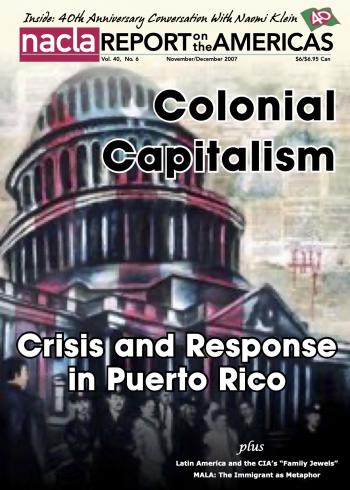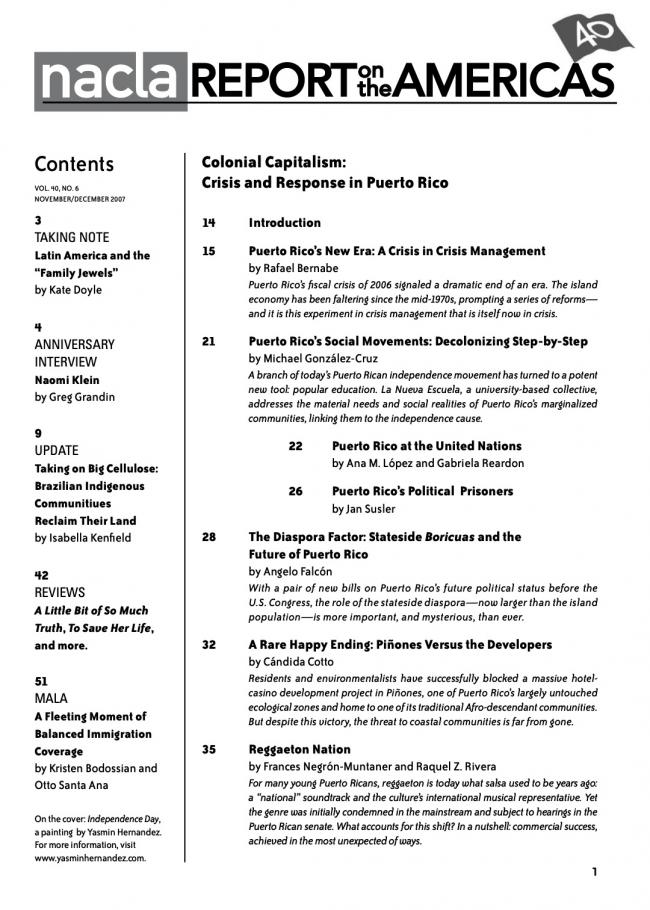
Since 1901, when the first duties between Puerto Rico and the United States were abolished, the island’s economy has served as a kind of experiment in what we today call neoliberalism. Puerto Rico has long been notable for its deep integration into the North American system, the maximal fluidity of labor and capital flows between it and the U.S. mainland, and its dependence on U.S. imports. This century-old brand of colonial capitalism has been adjusted and readjusted over the years, often in response to system-wide shocks—most recently and dramatically in 2006, when the insular government ran out of money and temporarily laid off about 80,000 public employees.

November/December
2007
Volume:
40
Number:
1
